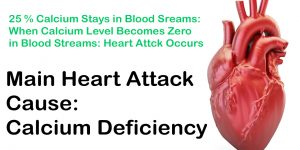-

-
-

-

-

-

-

-

-
If you want to live too long, you have to avoid eating the foods that are declared here. Wat we need to be disease free is healthy foods, plus we need lots of discipline.This is what makes us stupid for we do not listen to our body. Our mouth does not refuse but the entire system may suffer much.
-
Yes food effect human heart if we take wrong and bad food because it makes heart mineral upsets anon reaching in the arteries and veins. Therefore every human being eat food fresh and full of minerals and vitamins.
Coronary heart disease is characterised by a narrowing of the arteries (atherosclerosis). Fatty deposits, or plaques, cling to the artery walls and can clog the arteries, making it more likely that a blood clot will form.
A heart attack occurs when a blood clot blocks one of the arteries of the heart. This prevents the flow of blood, cuts off the oxygen supply to the heart and damages or kills the heart cells.
These foods may prevent heart diseases as There is no ‘magic’ food to decrease the risk of developing heart disease. You need to eat a healthy diet and have plenty of exercise. High-salt diets increase blood pressure and the risk of heart attack and stroke.
Most of us consume more than ten times the amount of salt we need to meet our sodium requirements (salt contains sodium and chloride). However, there is evidence that plant foods – especially wholegrain cereals, legumes, nuts, fruits and vegetables – may decrease the risk of heart disease.
The foods that best protect against heart disease include:
oily fish – such as mackerel, sardines, tuna and salmon which contain omega-3 fatty acids. This type of fat has been shown to decrease triglycerides and increase HDL-cholesterol levels, improves blood vessel elasticity and thins the blood, making it less likely to clot and block blood flowsome vegetables oils – such as corn, soy and safflower, which contain omega-6 fatty acids, and those containing omega-3 fatty acids such as canola and olive oil. All of these can help to lower LDL cholesterol when used instead of saturated fats such as butter
fruit and vegetables – antioxidants in fruit and vegetables offer protection against heart disease. Fruit and vegetables are also important sources of folate, which helps lower the blood levels of the amino acid homocysteine, which appears to be linked to an increased risk of heart disease
fibre – wholegrain cereals and fruit and vegetables
-
Diet and cardiovascular disease
The role of diet is crucial in the development and prevention of cardiovascular disease. Diet is one of the key things you can change that will impact all other cardiovascular risk factors.Comparisons between a diet low in saturated fats, with plenty of fresh fruit and vegetables, and the typical diet of someone living in the developed world show that in the former there is a 73% reduction in the risk of new major cardiac events.
Fat
Research makes it clear that abnormal blood lipid (fat) levels have a strong correlation with the risk of coronary artery disease, heart attack and coronary death. In turn, abnormal blood lipids are related to what you eat. A diet high in saturated fats (e.g. cheese) and trans fats (often used in cakes, cookies and fast food) leads to high levels of cholesterol.Saturated fats are found in animal products. Trans fats are oils that have been hydrogenated to turn them into semi-hard fats. Hydrogenated fat is found in processed food like shop-bought cakes, biscuits, stock cubes and a range of other products you buy every day. Saturated and trans fats raise cholesterol levels in the blood, which in turn can lead to atherosclerosis.
Unsaturated fats, polyunsaturated and monounsaturated are beneficial for heart health. They are present in fish, nuts, seeds and vegetables.
The essential fatty acids omega-3 and omega-6 are found in oily fish and in nuts and seeds. Our bodies cannot make these acids so we have to eat them to gain their benefits, which include improving cholesterol levels in the body.
But it is important to note that if your total fat intake is greater than 37% of your total calories, then even if that fat is unsaturated you increase your risk of cardiovascular disease. Saturated fat intake should not exceed 10% of total energy and for high-risk groups, like people with diabetes, total fat intake should be 7% or less of total energy.
Sodium
High blood pressure (hypertension) is a major risk factor for cardiovascular disease. If you have a diet high in sodium you risk hypertension.It has been estimated that a universal reduction in dietary intake of sodium by about 1g of sodium a day, about 3g of salt, would lead to a 50% reduction in the number of people needing treatment for hypertension. The same decrease would lead to a 22% drop in the number of deaths resulting from strokes and a 16% fall in the number of deaths from coronary heart disease.
Fruits and vegetables
Eating a diet high in fresh fruits and vegetables protects your heart. Low fruit and vegetable intake accounts for about 20% of cardiovascular disease worldwide. Fruit and vegetables contain components that protect against heart disease and stroke.Wholegrain cereals
Whole grains are unrefined and do not have the bran or germ removed. They contain folic acid, B vitamins and fiber, all of which are important protectors against heart disease. Processed grains like that used to make white bread and pasta do not have the same benefits as wholegrain cereals.Fish
In countries where fish consumption is high there is a reduced risk of death from all causes as well as cardiovascular mortality.Nuts
Eating nuts regularly is associated with decreased risk of coronary heart disease.Soy
There is evidence that soy has a beneficial effect on blood lipid levels. Eating 47g of soy protein a day led to a 9% drop in total cholesterol and a 13% reduction in LDL cholesterol in one study of people without any heart disease.Alcohol
If you have the occasional drink you may protect your heart, but only if you drink in moderation.
-
-

-

-

-

-

-

-

-

-

-
Mozart and Beethoven. No surprise the names of these two classical composers are mentioned. Between the music of Mozart and that of Beethoven, my choice would be to listen to Mozart first. Love his music!
-
I believe, and I choose the songs of Richard Clayderman because it soothes to my inner mind and my whole thinking. It is so soothing that I feel so relaxed while listening to the piano rendition of the songs. I believe you.
-
This is quite right. The music soothes the nervous system and the brain stops receiving spike signals. This gives total relaxation and ultimately leads to the lowering of the Blood Pressure. This effect of music will be more with the Classical music irrespective of the language,region, and the composer.
-
Indeed, music can soothe and can benefit our body mentally and physically.
-
Treathyl FOX, When I first heard about the music of Mozart I was so impressed with the beauty of the tones and the expertise of this musician is extra-ordinary. He is a real virtuoso.
-
sivasubrahmanyam shatdarsanam , Very well said my friend. That is how powerful music s.Others must know that music helps reduce their blood pressure, or shall we say normalize their blood pressure.How nice if they could try this so they can prolong their lives.
-
PEEUSH TRIKHA, That is right, if only love to listen to the right music, they will surely have a peaceful life and good health.Music has a mighty power that sways the destiny of man , through its melody we are brought to love and its glory we brought nearer God.Thanks for sharing your feelings and thoughts of this blog.
-
There are so numerous people sick of obesity and high cholesterol leading them to risk of stoke and heart attack.What is needed this time is more exercise tendencies, eating less oily foods and other bad foods. In case something bad is observed like high blood pressure, better enjoy yourself listening to mellow music f your preference. Always plug a headphone with religious or mellow songs, the better instrumental to reduce BP and to be away from risk of stroke or heart attack.
-
It is right that music is the food of soul but just music without songs because songs diverts human attention and disturbs human soul while listening.
The “mind” is defined in relation to the brain as responsible for reason and distinguishes the processed information from the brain. Also, there is a distinction between music and excellent music. he “power of music” is the influence of music on the brain, mind, or human soul
Music is also a type of communication. It can leave an unspoken message resonating in the hearer’s ear. It is a communication of thought and emotion. It can connect all types of people from around the world, giving messages of cheer such as “Don’t Worry, Be Happy.” Even music without lyrics can touch and move people.
-
Music is the universal language of the soul, the voice of the heart and the mighty power that sways the destiny of man Through its melody, we are brought to love and its glory , we are brought nearer God.That is how powerful love is in music. It truly carries our emotion and the more you will cry if the music hits your heart,The more you will be happy if the music played is your favorite. Life without music is boring.
-
-

-

-

- Load More









